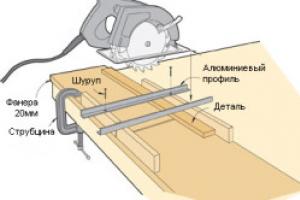Necessary for any enterprise, regardless of the form of ownership, activity and number of employees. To conduct it competently and professionally, you need to be well versed in labor law, monitor changes in legislation and have skills in the field of personnel records management.
What is personnel accounting and why is it needed?
An integral part of the activities of every company is personnel records. It represents work regulated by law on registration, accounting and monitoring of the movement of employees of the organization.
Personnel activities involve registration of:
- reception of employees;
- layoffs;
- horizontal (transfer between departments) and vertical (for example, career growth) movements;
- business trips;
- sick leave;
- time sheet;
- leaves (of any type - annual, without pay, for pregnancy, etc.);
- personal cards for each employee, etc.
HR accounting also includes:
- maintaining military records;
- regulation of labor relations;
- creation and registration of various (for example, about hiring, encouraging an employee, etc.);
- labor organization and other issues.
All documentation is prepared only in accordance with the required norms and rules. Some forms are unified, others are installed at the enterprise itself.
Competent organization of personnel records solves many problems and tasks of the company. Of course, there are thousands of nuances, but there are basic points that apply to every enterprise.
How to organize and who to entrust with maintaining personnel records?
There are several ways to organize accounting. Everything depends only on the characteristics of the enterprise and on what choice the manager makes. The most common options:
Create an entire HR department if the company employs a lot of people

And when the staff is small, you can hire one specialist. The advantages of this method are that the work is organized by the manager the way he likes and is regulated and controlled according to his own principles.
There are also disadvantages: it is difficult to check the professionalism of the specialist being hired, so there is a risk that a not entirely competent personnel officer will be hired.
You will have to spend time and money on training or look for another employee.
The advantages of this option for organizing accounting are that if a person is recommended, then (perhaps) he really does the job, that is, he has been tested in the case. Of course, you need to discuss working conditions with such a personnel officer so that they suit both parties.
Entrust HR matters to an accountant or a good secretary
Pros: It saves time and money. That is, there is no need to select a personnel officer, and there are no costs for maintaining records.
Disadvantages: the main problem when choosing this method is that employees perform additional work after the main one, which leads to errors, blunders, gaps and basic absence necessary documents. And, of course, professional knowledge on the topic of personnel records is important here. And if the same secretary has them, then the risk of complications in this case is minimized. And vice versa.
Entrust HR records to an outsourcing organization
Good: all personnel activities fall on the shoulders of the outsourcing company, which assumes such responsibility on the basis of a contract. In addition to the fact that constant, continuous assistance is provided on personnel issues, choosing this method significantly reduces costs.
Disadvantages: you need to choose a well-established, serious company, and you also need to establish interaction, create a concept of working with specialists who will work outside the office.
The manager just has to choose the most convenient and suitable way for him to maintain personnel records, weighing the pros and cons of each method.
Job functions of a personnel employee
The HR officer is assigned the following responsibilities in accordance with the instructions and employment agreement:

This is an incomplete list of the responsibilities of a personnel employee; the requirements are approximate. There may be more than the above (or less), but in total these are the skills and abilities that a HR specialist must have.
Personnel records: what documents are needed?
Normally, every enterprise must have the following types of documents relating to personnel:
- administrative (personal and production orders);
- confirming work activity;
- information and calculation;
- internal correspondence;
- control and registration logs.
Some personnel documents must be present at the enterprise. These include:
PVTR (internal labor regulations);

All documents are stored for a certain number of years. Regulated:
- article or section of the Labor Code;
- Resolution of the State Statistics Committee;
- Federal Law and other regulations.
If something (instructions, orders, etc.) is not available, then you will need this fact to correct. In general, one of the principles of the HR manager’s work is timeliness. It makes everyday work much easier and even gives legal force to some acts. It is actually very important not to neglect current affairs. Otherwise, they tend to grow like a snowball.
Organization of personnel records: how to keep it, where to start?
Having settled in a new position as a personnel officer, you first need to conduct an audit of the mandatory documentation. If it turns out (and this happens) that some important papers from the list are missing, then they need to be restored. Of course, it will not be possible to carry out such work in one day.
Therefore, you should highlight the most important positions and start with them. Check for the presence and correctness of the design (and if you need to correct or draw up a new document): staffing schedule, vacation schedule, employment contracts, orders, records in labor records.
Keep logs of employment contracts and personnel orders. Create . Understand personal cards (T-2). Work with local regulations.
The main thing is to complete all current documents on time. Work based on Labor Code and business rules. And do not destroy personnel papers. Their storage time is approved by the Federal Archive (“List…” dated 10/06/2000).
All accounting documents are needed for transparency of labor relations. The personnel system establishes norms and principles that provide stability to the organization’s employees, and administrations create convenient conditions for.
Accounting automation - 1C: advantages of working with the program
Keeping personnel records, especially in a large company, is an incredibly responsible and enormous job. But mistakes are not allowed here! But today there is a way to automate the activities of personnel officers, which can significantly facilitate and simplify the work of the department, streamline activities, significantly reducing the risk of errors.

Using the 1C program, you can keep records in accordance with legal requirements. The database ensures reliable storage of the necessary information on employees. As it accumulates, it becomes possible to build various reports that can help in analyzing work and developing new directions. For example, reports could be like this:
- staff turnover rate;
- personnel statistics;
- movement of workers, etc.
The program helps solve almost all problems and tasks of personnel accounting. Thanks to 1C, the head of an enterprise has the opportunity to obtain information about the state of affairs in a given department, conduct analysis and make the right management decisions. Automation also allows you to synchronize the activities of several company services (accounting, human resources, payroll department), which improves work efficiency and also creates all the conditions for timely payment of salaries.
Conclusion
So, to summarize, we can note the following:
- Personnel records are the most important part of any enterprise.
- There are several ways to organize accounting. The choice is up to the leader.
- The job responsibilities of a personnel employee are determined by the instructions and the employment contract.
- There is a list of documents related to personnel work that must be present in every company. And you should begin your career in the HR department by checking these documents.
- Keeping records is much easier if it is automated.
Personnel records are the core for normal and efficient work any enterprise. Therefore, its management must be approached with full responsibility.
In contact with
In business practice, personnel records management is very often left to the accounting department. We encounter such situations almost every day when clients contact us.
Moreover, this is typical not only for staff accounting. A similar combination of functionality is found in some outsourcing companies.
The lack of delineation of functional responsibilities entails very large risks for users of “combined” accounting, especially in the context of Russian labor legislation, which is more often on the side of the employee than the employer.
Today I want to talk about why an accountant cannot and should not conduct personnel records.
HR management is not the responsibility of an accountant
Let's start with the fact that accounting relies on the Tax Code in its work, and personnel records management requires deep knowledge of the Labor Code. Labor legislation is no less complex and dynamic than tax legislation. Due to this, personnel records management requires deep system knowledge. But, unfortunately, it is a rare accountant who can boast of this.
Example 1
The accountant receives an order to pay an employee a bonus. Let's say, “for beautiful eyes.” Instead of looking into local regulations (Regulations on bonuses, employment contracts, etc.) and finding out whether there are grounds for such a payment or whether the reason for the bonus needs to be reformulated, the accountant simply makes a calculation.
As a result, this amount cannot be legally accepted as company expenses, and this, in turn, increases the tax base for income tax. As a result, the company not only loses real money, but also risks running into claims from the tax authorities, which usually scrutinize the validity of bonus payments.
Example 2
A foreign mission requests an accountant to register an employee for remote work. For example, a foreign employee will work remotely while abroad, but at the same time his salary will be calculated in Russia. What does an accountant do most often? Enters such an employee into the database and makes a note that he works remotely. If a personnel officer sees something like this, he will immediately say that there is a violation, since remote work for foreigners is prohibited in Russia. The accountant may not have known about this, and the company’s top person will be responsible for the violation.
Example 3
From the head office of a foreign company, the accountant receives an order to hire such a citizen for such and such a position. However, the position is not included in the staffing table. In such situations, the accountant most often does not think twice and enters the employee into the salary calculation database as he was asked. This is because for an accountant, staffing is often a simple formality.
The personnel officer will first say: “Let’s take a look at the staff, perhaps we can hire an employee for one of the positions provided for there, just by changing the name a little.” “Inflating” the staffing table during a crisis can lead to unnecessary questions from the employment service, which will have to be answered adequately.
An accountant formally refers to personnel records
Not realizing the importance and value of personnel records, accountants treat the preparation of “personnel papers” formally. This leads to the fact that personnel documentation is maintained incorrectly, with a lot of shortcomings and errors. Accountants believe that since these are not reports and cannot be submitted anywhere, then “this will do.”
What can a violation of labor laws lead to?
In accordance with Art. 5.27 of the Administrative Code, violation of labor legislation entails the imposition of an administrative fine on the general director of up to 5 thousand rubles, and on the company up to 50 thousand rubles. It is also possible to replace the fine with an administrative suspension of activities for up to 3 months. Repeated violation of the law by an official who was previously subject to administrative punishment for a similar offense entails disqualification for a period of 1 to 3 years.
There is also a high probability of reputational risks. For example, in the absence of job descriptions, it may be difficult to dismiss an employee due to his failure to fulfill his job duties. And in the absence of personnel documents justifying certain payments to employees, as well as due to incorrect calculation of average earnings, labor disputes and conflicts are possible, which often develop into legal proceedings.
During the reporting period, the accountant does not have time for personnel issues
This means that during periods of reporting, HR records management will generally freeze. And it is not a fact that after submitting all the reports, the accounting department will remember and decide to return and correct all the gaps in personnel records made during the “downtime”. As our practice shows, it is precisely during such periods that complete chaos most often arises in a company’s personnel records: when hiring new employees and dismissing “old” ones.
An accountant's internal dissatisfaction can develop into open conflict
Personnel accounting is usually given to accountants as part of their main work. Obviously, the accountant is unhappy with this, especially if additional function does not affect his income. It may all end with the accountant either demanding a salary increase or deciding to quit (well, if there is no conflict and accompanying labor disputes).
So if you want:
so that relations with your company’s employees are formalized in full compliance with Russian labor legislation;
employees understood that they would not be able to manipulate you due to gaps and shortcomings in personnel work;
feel protected if a labor dispute with employees does end up in court;
avoid punishment for violation of labor laws and incorrect maintenance of personnel records in the event of a labor audit,
then it makes sense to transfer HR administration to a reliable outsourcing company.
At the same time, the issue of choosing such a company must be approached very carefully. The fact is that in a number of outsourcing companies there is very often no clear division between those who calculate salaries and conduct personnel records. Such a combination of functional responsibilities, as we have already shown above, leads to unfavorable consequences.
We, in turn, are well aware that the competencies and qualifications of an accountant do not cover the entire area of responsibility in terms of personnel records management. That is why we separate these positions: our payroll accountants deal only with their functionality, and personnel issues are the responsibility of labor law experts and Trudoviks.
Contact an expert
The organization has a small staff and the position of personnel officer is not provided and will not be introduced. The chief accountant signs for the personnel employee. Is it necessary to issue an order stating that the chief accountant performs the functions of a personnel officer and signs for him (what it will look like, can you give an example)? How to arrange everything correctly in such a situation in an organization? If the answer is to state this in the job description, then the organization does not have job descriptions and does not plan to do so, since the obligation to draw up job descriptions is established only for government agencies(Article 47 of the Law of July 27, 2004 No. 79 - Federal Law). An organization that is not a government agency cannot be fined for lack of instructions (letter from Rostrud dated August 9, 2007 No. 3042 - 6 - 0.
Answer
Answer to the question:
Let's consider your questions:
1. Is it necessary to issue an order stating that the chief accountant performs the functions of a personnel officer and signs for him (what it will look like, can you give an example)? How to arrange everything correctly in such a situation in an organization?
If the organization does not have a personnel specialist, then the responsibility for maintaining personnel documents automatically falls on the manager.
At the same time, an employee’s performance of work that is not part of his job duties can be documented in one of four ways:
- how, in this case, the position of a personnel employee should be entered into the organization’s staffing table;
- how, in this case, the position of a personnel employee should also be included in the organization’s staffing table;
- how, in this case, by expanding service areas and increasing the volume of work performed, we mean performing, along with one’s main work, stipulated by the employment contract, additional amount of work for the same profession or position;
Therefore, the only option you can use in this case is to enter into a civil contract for the provision of HR services. At the same time, due to the fact that the employee will actually perform this work out of state, then he does not have the right to affix his signatures, i.e. in this case, the employee will be able to perform personnel work, and the director of the organization will personally put signatures on all documents.
As for maintaining work records.
In the absence of an order to appoint a person responsible for working with work books, such a person by default is the head of the organization. This position is confirmed by judicial practice, see, for example,.
Consequently, if the organization does not have a personnel specialist, then the manager is obliged to assume obligations for maintaining, storing, recording and issuing work books by issuing an appropriate order. In this case, the wording in the order may be, for example, this: “In order to streamline the work with work books and in pursuance of clause 45 of the Rules for maintaining and storing work books, I assume the responsibilities for maintaining, storing, recording and issuing work books,” or he can delegate these powers to another employee (in your case, the chief accountant) to appoint a person in charge. This procedure is provided for in paragraph 45 of the Decree of the Government of the Russian Federation of April 16, 2003 No. 225.
Thus, even if there is no HR specialist on staff, the head of the organization has the right to assign the responsibility for working with work books to the chief accountant by issuing an order (see sample below). At the same time, when registering employment documents, the chief accountant must affix his signature and indicate his position in accordance with the employment contract (i.e., chief accountant).
2. If the answer states this in the job description, then the organization does not have job descriptions and does not plan to do so, because the obligation to draw up job descriptions is established only for government bodies (Article 47 of Law No. 79-FZ of July 27, 2004).
In this case, it is not legal to specify responsibilities for personnel management in the chief accountant’s job description.
Details in the materials of the Personnel System:
An employee’s performance of work that is not part of his job duties can be documented in one of four ways:
The choice of option depends on the nature extra work and the frequency with which the employee must perform it. If an employee will have to engage in a new job for a certain time, then it is better to arrange an internal part-time job or a combination of professions (positions).
With an internal part-time job, the employee performs additional work in his free time from his main job (and the Labor Code of the Russian Federation). For this purpose the employer ().
When combining professions, an employee does additional work during his regular working day. In this case, additional work is paid and is possible only with the written consent of the employee. Such rules are established in Article 60.2 of the Labor Code of the Russian Federation.
Expanding service areas and increasing the volume of work performed means performing, along with one’s main work stipulated by an employment contract, an additional volume of work in the same profession or position ().
In this case, the assignment of additional work to an employee for additional payment should be formalized by the employee and the employer signing an additional agreement to the employment contract, which will determine both the content and volume and duration of future work, as well as additional payment for its implementation (Article , Labor Code of the Russian Federation).
Based on the additional agreement to the employment contract, issue an order (in any form) to assign the employee the appropriate work and establish additional payment. Submit a copy of the order to the accounting department for calculation and payment of additional payments to the employee.
It should also be remembered that information about combining professions, expanding service areas, increasing the volume of work, performing the duties of a temporarily absent employee without release from work determined by the employment contract is not entered into the employee’s work book and his personal card (, paragraph, of the Rules approved , Instructions approved).
Ivan Shklovets,
No, it is not obligatory, however, in order to avoid misunderstandings, securing such powers is still recommended.
If the organization does not have a personnel specialist, then the manager can assume obligations by issuing an appropriate order. In this case, the wording in the order may be, for example, this: “In order to streamline the work with work books and in pursuance of clause 45 of the Rules for maintaining and storing work books, I assume the responsibilities for maintaining, storing, recording and issuing work books.”
In the future, if necessary, the manager will be able to delegate these powers to another employee: a personnel specialist, accountant or secretary, as well as the appointment of a person in charge. This procedure is provided for in Decree of the Government of the Russian Federation of April 16, 2003 No. 225.
At the same time, the legislation does not contain an obligation to issue an order specifically in relation to the manager. The fact is that in the absence of an order to appoint a person responsible for working with work books, such a person by default is the head of the organization. This position is confirmed by judicial practice, see, for example,.
Thus, it is not necessary for the manager to issue a separate order to assume the authority to maintain work records. At the same time, to streamline personnel records and unambiguously confirm the person in charge, the presence of such a document will not be superfluous. In addition, the phrase that the manager assumes responsibilities for maintaining work records may be part of another document regulating the powers of the manager in the organization.
Ivan Shklovets,
Deputy Head of the Federal Service for Labor and Employment
- Situation: How to formalize the performance of work (long-term or one-time in nature) that is not part of the employee’s job responsibilities
- How ();
- How ();
- How ();
- Situation:Is the head of an organization obliged to issue an order to assume the authority to maintain work books if he will maintain, store, account for and issue them independently?
- Situation: Who in the organization should be responsible for accounting, maintaining and storing work books?
In a large company, the HR department is usually responsible for maintaining work records. In a small organization, due to the lack of an appropriate special unit, accountants, secretaries or other officials can do such work. The appointment of the person responsible for working with work books must be formalized by the head of the organization in free form (Rules approved). If there is no one to entrust the maintenance of books, then those responsible for accounting.
When changing the person responsible for working with work books, transfer the work books according to the act of acceptance and transfer of cases. In this case, in the act, indicate not just the number of books, but list their actual composition (names of owners and details). The act must be certified with two signatures - on the one hand, indicate the position and surname of the person who accepted the documents, on the other hand, the person who submitted the documents. If you discover facts about the absence of some work books, draw up an act in which you indicate the reasons for their absence.
Ivan Shklovets,
Deputy Head of the Federal Service for Labor and Employment
Order on the appointment of an official responsible for maintaining, storing, recording and issuing work books
ORDER No. 256
on the appointment of an official responsible for maintaining, storing,
accounting and issuance of work books
Moscow 01/10/2014
In accordance with the distribution of job responsibilities approved by the organization’s personnel department
I ORDER:
1. Appoint a personnel inspector responsible for maintaining, storing, recording and issuing work books.
2. If the HR inspector is absent from work, maintaining work records is entrusted to the head of the HR department.
3. I reserve control over the execution of the order.
Director ______________ A.V. Lviv
The following have been familiarized with the order:
Head of HR Department ______________ E.E. Gromova
10.01.2014
HR inspector ______________ A.V. Dezhneva
10.01.2014
With respect and best wishes comfortable work, Svetlana Vartanova,
HR System expert
The most important changes this spring!
-
There have been important changes in the work of HR officers that must be taken into account in 2019. Check in the game format whether you have taken into account all the innovations. Solve all the problems and receive a useful gift from the editors of the “Personnel Business” magazine. Prohibited documents in the personnel service -
If you pay vacation pay a day late, the company will be fined 50,000 rubles. Reduce the notice period for layoffs by at least a day - the court will reinstate the employee at work. We have studied judicial practice and have prepared safe recommendations for you.
Inspectors from GIT and Roskomnadzor told us what documents should now under no circumstances be required of newcomers when applying for employment. Surely you have some papers from this list. We have compiled full list and selected a safe replacement for each prohibited document.
If there is no HR officer on staff, who should be assigned responsibilities and how? I meant responsibilities, such as: maintaining work records, maintaining military records, labor protection... - Those Orders on the organization that are checked by regulatory authorities. external part-time work is not suitable for us - we have concluded an agreement with an external organization for the “provision of HR services” internal - especially since The staff consists of only engineering staff, CEO and Chief Accountant
Answer
Answer to the question:
Firstly, the question describes the responsibilities of not only the personnel officer.
Secondly, registration of additional work is strictly regulated by law. The order, unfortunately, is not enough, including for the inspection authorities.
Thirdly, the work of maintaining military records can only be done part-time.
The maintenance of employee work books must be carried out by a person appointed by order of the employer. An order can only be issued in relation to an employee, i.e. a person subject to the employer's disciplinary authority. It is the employer who remains responsible for purchasing work books, storing them, and issuing them to the employee upon dismissal..
As for military registration, this must also be an employee of the organization, depending on the number of personnel. For more information about this, see here: http://vip.1kadry.ru/#/document/161/73349/.
In addition, if the organization does not have the position of a personnel employee in its staffing table, then all responsibility for maintaining personnel records rests directly with the head of the organization .
The assignment of functions for signing personnel documents to third-party citizens is not provided for by labor legislation. Therefore, all signatures certifying employee personnel documents must be signed by the manager personally , because a freelancer cannot sign personnel documents.
That is, in the ShR, the position of personnel officer (even 0.1 rate is acceptable) must be entered and issued to an employee who conducts personnel records in a third-party organization at a given rate for an external part-time job.
As an option, you can arrange a combination for one of your employees (to whom is determined by the employer by agreement with a specific employee).
But for this, the rate (part of the rate) must also be present in the staffing table.
This also applies to labor protection work. The staffing table must include a position for a labor protection specialist, and one of the working employees, if they have the necessary qualifications, can also be given a part-time job.
The Labor Code of the Russian Federation clearly regulates the procedure for attracting an employee to additional work. Art. is dedicated to this. 60.2 Labor Code of the Russian Federation.
Involving an employee in additional work is possible by agreement of the parties, if there is a corresponding position (rate or part of the rate) in the staffing table and only for an additional fee (Article 60.2, 151 of the Labor Code of the Russian Federation).
Please note that it is also impossible to include in the job description actions that relate to another job function (appeal ruling of the Samara Regional Court dated July 9, 2014 No. 33-6615/2014).
And according to the latest clarifications of the Ministry of Labor, an employment contract with an employee can be concluded one by one specific job function.
The functions of a personnel officer, a labor protection specialist, and a military registration specialist are different.
Order of the Ministry of Labor of Russia dated October 6, 2015 No. 691n On approval of the professional standard “Human Resources Management Specialist”
Order of the Ministry of Labor of Russia dated August 4, 2014 No. 524n On approval of the professional standard “Specialist in the field of labor protection”
Order of the Ministry of Health and Social Development of Russia dated May 17, 2012 No. 559n On approval of the Unified Qualification Directory of positions of managers, specialists and employees, section “qualification characteristics of positions of managers and specialists carrying out work in the field of labor protection”
How to organize military personnel registration
And, in any case, the duties should not go beyond the scope of the job function, and the title of the position should correspond to the job function actually performed by the employee.
Performing work within the employee’s main working hours that is not part of his job responsibilities can be done in one of two ways:
as a combination of professions (positions) (Article 60.2 of the Labor Code of the Russian Federation);
as an expansion of service areas or an increase in the volume of work performed (Part 2 of Article 60.2 of the Labor Code of the Russian Federation);
At combination of professions The employee is engaged in additional work in another position during his regular working day. In this case, additional work is subject to payment and is possible only with the written consent of the employee. Such rules are established in Part 1 of Article 60.2 of the Labor Code of the Russian Federation.
Expanding service areas and increasing the volume of work performed means performing, along with one’s main work stipulated by an employment contract, an additional volume of work. in the same profession or position(Part 2 of Article 60.2 of the Labor Code of the Russian Federation).
Additional instructions work is documented for a specific position provided for in the staffing table and only with the written consent of the employee and with the establishment of additional payment by agreement of the parties (Article 60.2,151 of the Labor Code of the Russian Federation) .
Experts from the Ministry of Labor come to similar conclusions. See Letters of the Ministry of Labor of Russia dated July 20, 2016 N 14-2/B-688 and dated December 26, 2016 N 15-2/OOG-4698.
The courts adhere to the same position.
For example, the Judicial Collegium for Administrative Cases of the Rostov Regional Court in the appeal ruling dated March 26, 2015 in case No. 33-4792/2015 indicated that the performance by an employee of duties in accordance with the terms of the additional agreement cannot be attributed to an expansion of the service area, an increase in the volume of work, since the employer’s staffing table provides for one staff unit for his position (see also the appeal ruling of the Investigative Committee for civil cases of the Moscow City Court dated July 12, 2012 No. 11-11218/2012).
In addition, the courts note that a mandatory condition for an employee to perform additional work in another position is written agreement of the parties labor relations (rulings of the Voronezh Regional Court dated June 10, 2014 No. 33-3117, Primorsky Regional Court dated December 15, 2015 in case No. 33-11469/2015, etc.). Therefore, it is impossible to do without an agreement that will spell out the conditions of combination.
Regarding your last question, a full-time employee, and not a third party, should represent the company’s interests during the inspection.
Details in the materials of the Personnel System:
1. Situation: What documents may the labor inspectorate request for verification?
During an inspection - both scheduled and unscheduled - the labor inspectorate may request and receive from the employer free of charge documents that relate to the topic of the inspection (paragraph 3, part 1, article 357 of the Labor Code of the Russian Federation, part 1, article 11, part 1 Article 12 of the Law of December 26, 2008 No. 294-FZ). These can be documents for any periods, if the inspection order does not establish any restrictions.
Inspectors may not require during an inspection:
documents and information that are not related to the subject of the inspection (clause 3 of article 15 of the Law of December 26, 2008 No. 294-FZ);
documents that are already in the electronic databases of other government agencies. Inspectors receive such documents in the order of interdepartmental exchange (clause 8 of article 7, clause 8 of article 15 of the Law of December 26, 2008 No. 294-FZ). The list of documents was approved by order of the Government of the Russian Federation dated April 19, 2016 No. 724-r. It includes information from the Unified State Register of Individual Entrepreneurs and the Unified State Register of Legal Entities, about the average number of employees for the year, about the debt to pay fines for violations of the law and dozens of other documents.
A unified list of documents that the inspection may request from an organization is not established by law. The list of such documents is determined individually for each inspection case, depending on its purposes, and is recorded in the inspection order (clause 8, part 2, article 14 of the Law of December 26, 2008 No. 294-FZ).
In particular, the labor inspectorate may request:
– constituent documents of the organization, as well as orders confirming the powers of its officials;
– employment contracts with employees and additional agreements thereto;
– personal cards and job descriptions of employees;
– staffing table;
– work books of employees, a book for recording the movement of work books and inserts in them, as well as an order appointing a person responsible for recording, maintaining and storing work books;
– HR orders on admissions, transfers, vacations, dismissals, etc.;
– internal labor regulations;
– local regulations on remuneration, for example, Regulations on remuneration, Regulations on bonuses;
– information about the absence of salary arrears;
– statements, notes, calculations, as well as other documents relating to the calculation and payment of wages;
– time sheets, etc.
If the inspection concerns compliance with labor safety requirements in the organization, then the inspection may request, for example, safety instructions, instruction logs, etc.
Inspectors will get acquainted with the documents either directly at the organization’s office or at their inspection, having previously requested documents according to the list. This depends on the form of the inspection: on-site or documentary.
Ivan Shklovets, Deputy Head of the Federal Service for Labor and Employment
With respect and wishes for comfortable work, Tatyana Kozlova,
HR System expert
1 tbsp. 27 of the Federal Law of December 29, 2012 No. 273-FZ “On Education in Russian Federation» How to determine required amount HR workers? The regulatory legal acts do not provide an answer to this question.
To determine the required number of specialists, the employer needs to organize work on labor standards. In this case, you can use the Interindustry integrated time standards for work on staffing and accounting, approved.
Resolution of the USSR Ministry of Labor dated November 14, 1991 No. 781, which were developed to determine the cost of working time for work on recruitment and personnel records, time and military records and were recommended for establishing standardized tasks, as well as justifying the required number of workers engaged in these works.
The only thing is that it is necessary to correct information about the time costs for certain operations specified in this document, since since 1991
HR service in the organization
Sometimes office management and labor protection are separated into separate structural units that are not subordinate to the HR director.
Such a document is not mandatory, but its presence will help structure the work of the department: identify the tasks being performed, the functions performed, the rights and responsibilities of specialists, their interaction within the department, as well as the rules of communication with other divisions of the enterprise.
After approval of the Regulations by the head of the organization, it becomes a local regulatory act - a kind of job description for the entire department.
It is necessary to approach the drafting of the Regulations with all responsibility: after all, in the future, the effectiveness of the department will be assessed based on how well the tasks formulated in this document are fulfilled.
We will advise you on accounting, tax and legal issues.
The head of the organization is responsible.
All department employees must familiarize themselves with the contents of the Regulations and sign. It is interesting to compare 2 documents: Regulations on the HR Department and Regulations on the Personnel Department.
The head of the organization is the representative of the employer in labor relations with employees (). At the same time, he performs the function of the sole executive body. Within the framework of these statuses, he manages the current activities of the organization (including personnel records management) and makes personnel decisions: approves the staff, formalizes the hiring, transfer, dismissal, promotion of employees, bringing them to disciplinary liability, issues orders and gives instructions mandatory for execution.
Confirmation: In this case, the manager can delegate part of his powers to another employee of the organization - by his order (instruction) appoint a responsible person (see). So, in accordance with the law, a manager can, for example, head the personnel department, secretary, accountant, as well.
But if he has not delegated these powers to anyone, then he is obliged to keep work books and military records himself. This rule can be applied by analogy to other HR procedures, since the legislation does not contain general provisions in this regard. Confirmation: paragraph , Rules, approved.
Decree of the Government of the Russian Federation No. 225 of April 16, 2003, approved. Decree of the Government of the Russian Federation No. 719 of November 27, 2006
The head of the organization will be responsible for personnel records management even if it is outstaffing, since under such an agreement the contractor and the customer act within the framework of a civil law agreement.
That is, the head of the organization does not have the right to appoint responsible persons from among the employees provided by the contractor. Conclusion: if the head of the organization has not delegated the authority to conduct personnel records (execution of personnel documents) to another employee (employees) of the organization, he himself is responsible for its management.
Since document flow involves a large amount of work, a separate specialist(s) or specialists are usually assigned to this area.
Setting up personnel records 6 Personnel documents Personnel documents Personnel documents Personnel documents Personnel documents Personnel documents Rules for the preparation, storage and audit of personnel documents 7 Personnel documents Personnel documents Personnel documents Personnel documents Personnel documents Personnel documents Personnel documents
Is it necessary to issue an order stating that the chief accountant performs the functions of a personnel officer?
In this case, the wording in the order may be, for example, this: “In order to streamline the work with work books and in pursuance of clause 45 of the Rules for maintaining and storing work books, I assume the responsibilities for maintaining, storing, recording and issuing work books,” or he can delegate these powers to another employee (in your case, the chief accountant) to appoint a person in charge. This procedure is provided for in paragraph 45 of the Decree of the Government of the Russian Federation of April 16, 2003.
No. 225. Thus, even if there is no HR specialist on staff, the head of the organization has the right to assign the responsibility for working with work books to the chief accountant by issuing an order (see sample below). At the same time, when registering employment documents, the chief accountant must affix his signature and indicate his position in accordance with the employment contract (i.e., chief accountant). 2. If the answer states this in the job description, then the organization does not have job descriptions and does not plan to do so, because
Who should be appointed responsible for personnel records?
On January 11 at 17:01, THE HR MANAGER WAS ACCEPTED INTO THE ORGANIZATION OF Tsvetok LLC, this organization entered into agreements for maintaining personnel records with Cornflower LLC, Romashka LLC and Dandelion LLC, who should be appointed responsible for maintaining work records, etc. Sincerely, Svetlna Save changes Cancel your message Publish Rating: 7991 January 11 at 17:08 Good afternoon! If an organization has entered into an agreement for the provision of personnel management services with another organization, then the organization will be responsible, not individual. All this is specified in the contract.
With this approach, consent is required from employees for the processing of their personal data by a third party. Add a link to the code article Select the code Labor Code Add a link to the official document Save changes Cancel Best answer! mark the answer as the best 0 Comment on the user's answer Comment text Post a comment Cancel January 11, 2019 January 11, 2019 January 11, 2019 January 11, 2019 in the Personnel Council to publish the answer.
Answer to a user's question in the Personnel Council to publish the answer. Or publish the answer as a guest: e-mail: signature: Answer text Add a link to the code article Select the code Constitution Arbitration Procedural Code Budget Code Water Code Air Code Urban Planning Code Civil Code Civil Procedure Code Housing Code Land Code Code of Inland Water Transport Code of Administrative Offenses Merchant Shipping Code Forestry Code Tax Code Family Code Customs Code Labor Code Criminal Executive Code Criminal Procedure Code Criminal Code Add a link to an official document Find Send a reply Ask a question to the experts Do you have a question?
Ask an expert and get an answer from the personnel council Close cancel Yes No
If the secretary is also a personnel officer
Only, these documents should no longer be developed by a secretary with the responsibilities of a personnel officer assigned to him, but by a whole team, which includes a labor economist and a labor protection specialist. Can the secretary develop all the listed LNAs independently?
Probably yes. But it’s better not alone, but in tandem with the chief accountant or head of the organization.
First of all, this applies to those LNAs that establish the procedure for remuneration of workers. The employer is obliged to ensure the safety of personal information of employees in accordance with Federal law No. 152-FZ.
It is not enough to approve the provisions on personal data. Additionally required: written permission from employees to process their personal data; written obligations of employees processing the personal data of colleagues about their non-disclosure; special regime for storing documents containing personal data.
Human Resources Department
The structure of the enterprise's personnel department and its number is determined by the director of each company, depending on the total number of personnel and the characteristics of the activity.
In small companies (up to 100 employees), one or two HR employees are sufficient.
At the same time, in small enterprises there may not be a separate employee, and then such work is performed by the chief accountant or general director.
In medium-sized organizations (from 100 employees to 500 people), it is advisable to create a personnel department of three to four personnel specialists. In large enterprises with 500 or more people, the personnel department can number from 7 to 10 employees. To effectively perform its functions, the HR department must constantly and closely interact with other departments of the enterprise: interacts with the organization’s accounting department to resolve issues related to remuneration.
There is no personnel officer who conducts personnel
It can be included in the PVTR and then a separate document is not required.
Info Employees should be familiar with it.
- Relevant orders. On hiring, on approval of pay slips, PVTR, PZPD, etc. That is, all actions related to personnel must be carried out on the basis of orders/instructions of the manager (or another authorized person). There are approved forms for some orders (for example, hiring).
- Documents confirming authority. Powers of attorney in the case when personnel documents are signed not by the manager, but by a specially authorized person.
- This concludes the minimum list of required personnel documents.
That is why at every large enterprise where the number of employees is large enough, a personnel department is usually formed. Its employees are required to complete documentation in accordance with established standards.
How to appoint someone responsible for HR records?
The Ministry of Labor does not give the exact title of the position of HR specialist. This could be a personnel manager, the head of the personnel department, a personnel officer, and even a timekeeper.
The rights and responsibilities of an employee are specified in the job description. It must be noted there how much work the personnel employee will perform, what processes in the office and in production he will be responsible for, what penalties can be applied in case of poor quality work. The instructions and the wording in them are developed by the head of the organization; there is no sample here.
Be sure to discuss all points of the future instructions with the organization’s lawyer or an independent expert. There should be no ambiguity, double interpretation of points or overly vague wording.








